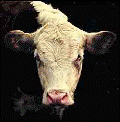Animal Science, Department of

Department of Animal Science: Dissertations, Theses, and Student Research
First Advisor
Galen E. Erickson
Date of this Version
Spring 4-20-2018
Document Type
Thesis
Citation
Winders, T. M. 2018. Collection of a pen-scale methane collection system and dietary strategies for methane mitigation from growing and finishing cattle. Thesis.
Abstract
Methane production from ruminants has been researched for many years because it has a global warming potential 25x that of carbon dioxide, meaning that mitigating smaller amounts of methane can have a large environmental impact. Research has focused on individual animal methane measurements, but the literature lack in industry-scale measurements. For that reason, the methane barn was built to evaluate dietary strategies on pens of cattle rather than on individual animals. In order to test the methane barn capabilities, an experiment designed to produce differences in methane production was conducted. Cattle received the same growing diet, at either ad-libitum access to feed or restricted access to feed (75% of the ad-libitum intake). Methane (g/d) was lower for the limit-fed cattle, which gave us confidence that the methane barn was working correctly. The second trial evaluated the effects of corn oil on methane production and animal performance. Corn oil reduced methane production (g/d, k/kg ADG) in finishing cattle and improved performance. Feed additives that alter the rumen environment as a methane mitigation strategy have shown some promise. Biochar was evaluated using in vitro and in vivo methods to determine gas production as well as digestibility characteristics associated with feeding it. In vitro results showed that as biochar inclusion increased, total gas and methane increased. When tested in vivo, biochar inclusion reduced methane and carbon dioxide production compared to control. OM digestibility and NDF digestibility were greatest for 0.8% inclusion of biochar, while 0 and 3% were not different.
Advisor: Galen E. Erickson


Comments
A THESIS Presented to the Faculty of The Graduate College at the University of Nebraska In Partial Fulfillment of Requirements For the Degree of Master of Science, Major: Animal Science, Under the Supervision of Professor Galen. E. Erickson. Lincoln, Nebraska: April 2018
Copyright (c) 2018 Thomas M. Winders